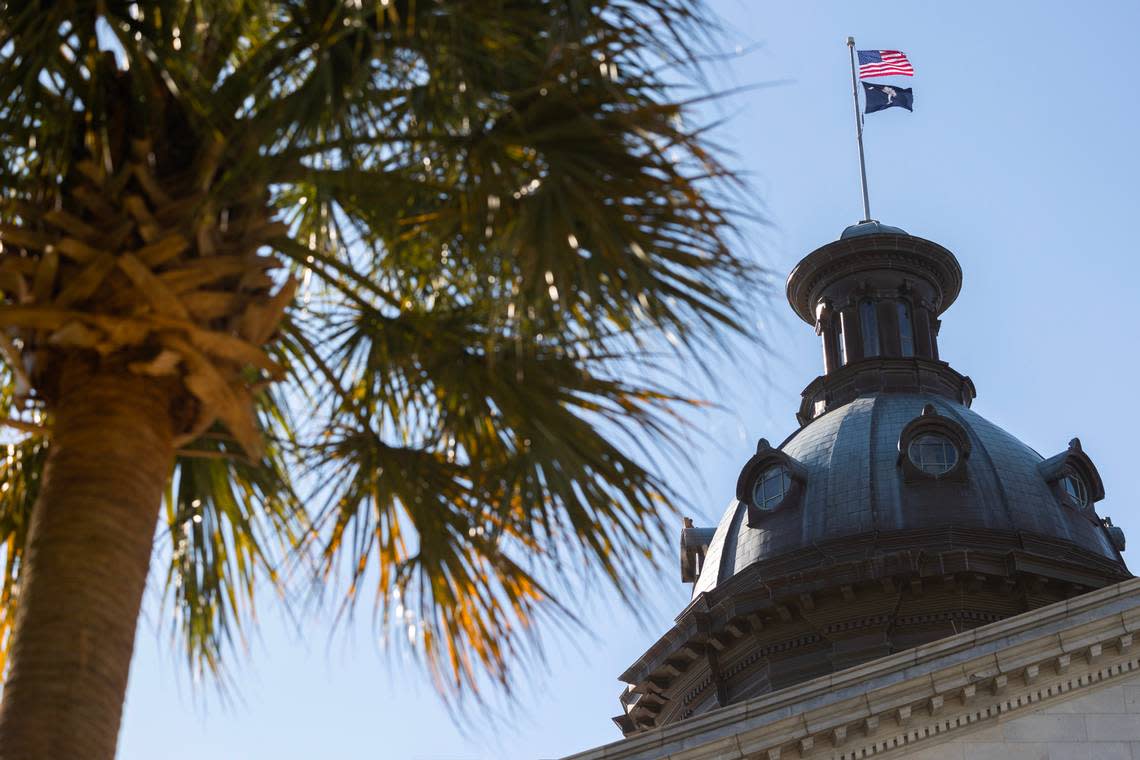Ex-SC schools chief, former neo-Confederate magazine editor seek spots on higher ed panel

- Oops!Something went wrong.Please try again later.
Three men, including a editor of a neo-Confederate magazine and a former state education superintendent, are being considered for the S.C. Commission on Higher Education.
On Tuesday the Senate Education Committee discussed the candidacies of Oran Smith, the former editor of Southern Partisan magazine; Mick Zais, former state Superintendent of Education; and Gene Fant, president of North Greenville University. The committee gave all three favorable reports.
Smith, a Coastal Carolina University board member, will be considered for a seat to represent four-year public institutions of higher learning. Four years ago, Smith was a candidate to be executive director of the commission, before Rusty Monhollon was chosen.
He was deemed “highly qualified” by a search committee at the time, but his time at Southern Partisan two decades earlier was cause for concern.
Smith was editor at Southern Partisan between 1989 and 1999. The Southern Poverty Law Center said the Southern Partisan jump-started the neo-Confederate movement. The magazine’s promotion of a “white genocide” conspiracy theory was cited by Dylann Roof, who killed nine people at Emanuel AME Church in Charleston in 2015, according to The Atlantic.
Smith told The State in 2019 that he changed his views after a racially-motivated shooting.
On Tuesday, he told the committee he “couldn’t distance himself further” from the magazine’s “moonlight and magnolia myth” that the old South was happy.
Smith also is a senior fellow at state Superintendent of Education Ellen Weaver’s conservative think tank, the Palmetto Promise Institute.
Fant, president of North Greenville University, a private, nonprofit school, is up for a seat to represent independent colleges. He has spent 20 years at Southern Baptist-affiliated schools.
Fant supported a $1.5 million state budget earmark for a private, Christian residential school to be built by the Christian Learning Centers of Greenville County. The move by lawmakers raised questions about whether the allocation violated the state constitution. He wrote Gov. Henry McMaster in June 2022 urging him to support the earmark too, calling it a “personal project” for North Greenville University because many employees, including himself and his wife, volunteer for and donate money to Christian Learning Centers.
The state was later sued by a Wisconsin-based nonprofit that promotes the separation of church and state. The nonprofit claimed that the earmark violated the South Carolina Constitution’s prohibition on using public funds to directly benefit private educational institutions.
Christian Learning Centers eventually scrapped the idea of a residential school in favor of a charter school and was subsequently awarded the earmark by lawmakers.
“I’m very big on public-private partnerships,” Fant said. “That was a particular project that I felt like was one that was worthy of a public-private partnership.”
The third commission board hopeful, Zais, is set to fill an at-large seat on the board. He was South Carolina’s superintendent of education from 2011 to 2015. Under his leadership, school choice grew, Inside Higher Ed reported. He was also critical of Common Core education standards, according to Education Week.
Two years later, Zais headed to the White House to serve as deputy education secretary for the U.S. Department of Education under President Donald Trump. He also spent 13 days as the U.S. Secretary of Education after former Secretary Betsy DeVos resigned in January 2021, before President Joe Biden was inaugurated and chose the department’s next leader. Zais is now an educational consultant for CivicPoint LLC., a public affairs firm.
Zais could not be reached for comment.
South Carolina’s 15-member Commission on Higher Education helps coordinate the state’s higher education system, according to its website. It administers state, regional and federal programs, recommends policy to the governor and more.
“We trust this process and look forward to working with any newly-appointed commissioners to support South Carolina’s students in pursuit of their educational and career goals,” said Mark Swart, a commission spokesman.
All three candidates must be approved by the entire Senate before the 2023 legislative session ends on Thursday.

